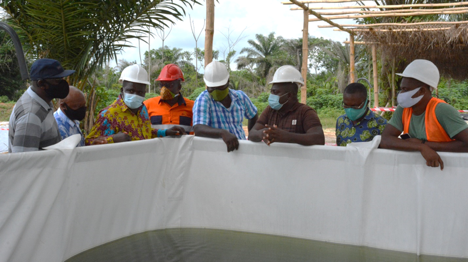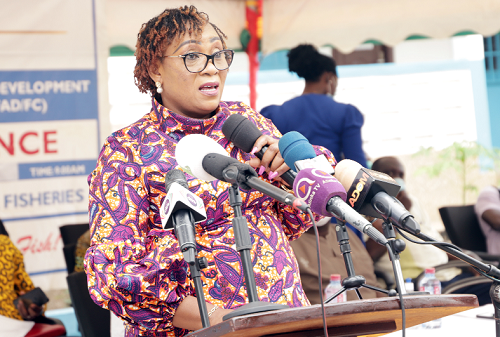In a groundbreaking event held last week at Nsuaem in the Central Region, President Nana Addo Dankwa Akufo-Addo unveiled the Aquaculture for Food and...
Poor governance and lack of transparency and accountability in the fisheries sector among coastal communities in the Gulf of Guinea are contributing to a...
Women in Fisheries Against Violence (WiFVEs) project has been launched at Anomabo in the Mfantseman Municipality in the Central Region to address issues of...
The European Union in recent years has demonstrated its interest in the way the fisheries sector is managed in Ghana and neighboring countries towards...
Today, the fisheries sector is playing an extremely important role in Ghana. It binds hundreds of coastal communities, supporting livelihoods and survival for almost...
Most fishermen in coastal districts of the Western Region have embraced this year’s fishing Closed Season which lasts from July to September.
A visit to...
Deputy Minister of Fisheries and Aqua Culture Development (MoFAD), Moses Anim, has strongly indicated that the sector ministry is poised to ensure responsible fishing...
Covid-19 continues to have an adverse impact on the global landscape. Assets worldwide are depreciating and bankruptcies abound; gold is a new means of...
The Ministry of Fisheries and Aquaculture Development (MoFAD) has disclosed that an estimated amount of US$2.5million is needed to fully tackle and bring an...
The subsidy on premix fuel is a major contributory factor to depletion of fish stocks in the country’s ocean, Prof. Wisdom Akpalu, Director of...
















